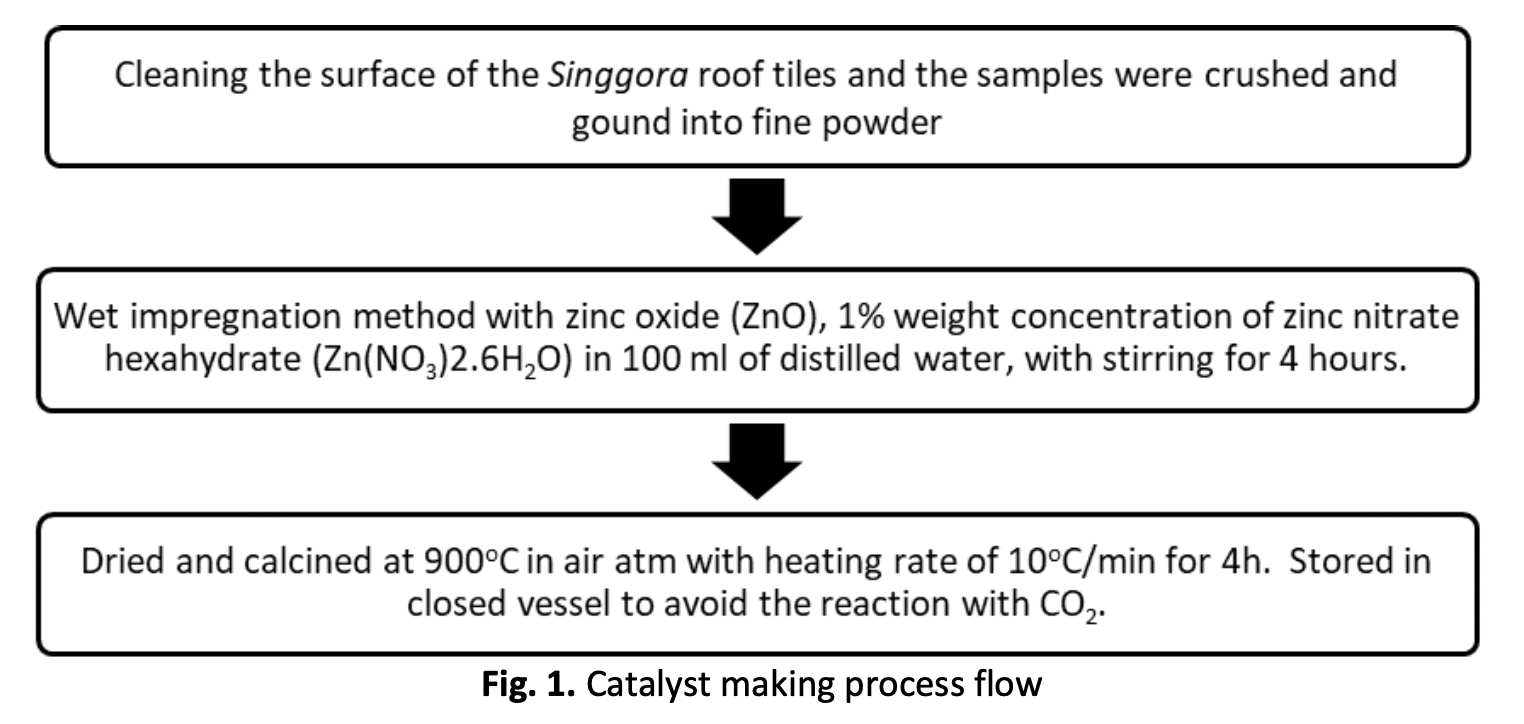Zno Loaded Singgora Roof Tiles as Heterogeneous Catalyst for Waste Cooking Oil Biodiesel
DOI:
https://doi.org/10.37934/arfmts.114.1.93102Keywords:
Singgora roof tiles, heterogeneous catalyst, transesterification, biodieselAbstract
This study aimed to utilize the waste cooking oil (WCO) into biodiesel using a novel waste Singgora roof tiles wet impregnated with zinc oxide (ZnO) as a heterogeneous catalyst. The motivation behind this choice stems from the non-recyclable nature of Singgora roof tiles and their potential applicability in biodiesel synthesis. The catalyst was characterized by X-ray Fluorescence (XRF) and scanning electron microscopy (SEM) with energy-dispersive X-ray diffractometer (EDX). A two-step transesterification method was employed to reduce the concentration of free fatty acids (FFA) in the WCO. The process started by treating the WCO with sulfuric acid (H2SO4) to diminish the levels of free fatty acid (FFA), followed by the utilization of the Singgora roof tiles catalyst in the subsequent step. A maximum yield of 96.96% biodiesel was obtained under the optimal conditions, which included a methanol-to- oil ratio of 12:1, a catalyst concentration of 1 wt.%, a reaction temperature of 65 °C, and a 2-hour reaction time. The quality of the biodiesel produced was analyzed according to biodiesel standards specified in the ASTM D6751, EN 14214, and AOCS, and were within the ranges. The study demonstrates the potential of using Singgora roof tiles as a heterogeneous catalyst in biodiesel production, offering a promising approach to repurposing non-recyclable materials and advancing sustainable biodiesel production methods.
Downloads

































